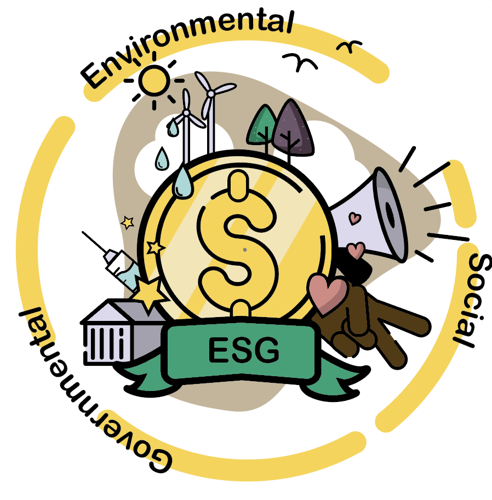The U.N. have added a renewed sense of alarm to rising temperatures, calling them a “code red for humanity.”
In a report released by the Intergovernmental Panel on Climate Change earlier this month, the U.N. affirmed that human activity was the cause of rising temperatures and sea levels, stressing that a “strong and sustained” reduction in carbon emissions is necessary to limit climate change and improve air quality.
Yet, while the climate crisis has caused irreversible changes in the environment, it may also be stirring shifts in investment practices.
ESG Investing Surges
Over the past year, asset managers such as BlackRock and DWS have put focus on companies that have prioritized ESG initiatives.
A company that prioritizes ESG initiatives would work to reduce their carbon footprint, develop good relationships with employees and customers and ensure that company leadership is serving as a positive role model. Companies that set ESG standards appear as low-risk investments, as they reduce practices that may be the cause of ethical or safety concerns. ESG investing is also known as socially responsible investing.

ESG initiatives focus on environmental, social and governmental impacts. Such business practices can range from reducing the carbon footprint to promoting equality.
The Dow Jones Sustainability Index (DJSI) — which tracks the stock performance of companies with high ESG rankings — has climbed 25% year to date, outperforming both the Dow Jones Industrial Average (DJIA) and the S&P 500.
Already, ESG global assets under management (AUM), or the total market value of assets that a person of business holds are valued at $37.8 trillion — up 24% from 2018. By 2025, ESG assets are predicted to make up one-third of all AUM as more companies begin to tackle issues, ranging from climate change to racial inequity.
According to the Marshall and Whatley Investment Group — a wealth management firm based in Harrisonburg — companies that engage in socially responsible initiatives may see higher sales as a result of favorable public opinion. Sustainability programs may also reduce costs, improve margins and attract the attention of investors.
Despite these results, there’s a diverse range of opinions on ESG assets, with many firms debating if ESG stocks are being valued properly.
One problem is that it’s hard to determine which companies are actually championing sustainable practices. ESG standards are subjective, and some firms are being accused of “greenwashing” — a term used to describe a business that’s overplaying their sustainability efforts in order to mislead investors or the public at large.
Additionally, there seems to be little concern by investors over how companies perform individually on environmental, social or governance practices. For example, while Tesla produces electric vehicles, the company has had issues with labor relations. Overall, it’s still considered a socially responsible company.
Nevertheless, the number of ESG focused investment firms have almost tripled over the past 10 years. Investors decide on which companies are socially responsible through a number of ways.
One approach is called negative screening, in which investors are able to avoid companies that go against their individual ideologies, such as the promotion of gambling or firearms use. According to Bloomberg, the biggest factor in the negative screening process are religious beliefs.
Meanwhile, speciality funds exist, where money is put into companies championing a single issue. It would explain why investors sometimes focus on companies that score highly on one single part of ESG.
Adapting to the ESG
As more companies take on ESG initiatives, analysts are beginning to offer new insight on how markets may change in the near future.
Shamina Singh, Mastercard’s executive vice president of corporate sustainability, has said that large companies shouldn’t be alone in getting involved in ESG practices. Things like ensuring transparency with consumers and cooperating with other businesses to give back to the community can increase brand value.
“ESG needs to be core to how a company views its growth strategy,” Singh said.
Even some of the largest and most reputable companies are being made to adapt, as more focus is put on issues such as climate change. Berkshire Hathaway — a holding company owned by billionaire Warren Buffett — is losing favor with asset management groups for having low ESG scores, despite performing well by other standards.
Though companies such as Mastercard are recommending that companies take a holistic approach to ESG as its popularity continues to grow, 25% of ESG funds in 2020 say that climate change is the most pressing issue they are looking for businesses to address.
Regardless, whether the focus is on environmental sustainability, social justice or corporate governance, ESG investing is having an impact on markets today and will continue to do so for the foreseeable future.
Jabril Al-Hamdy is a sophomore finance major. Contact Jabril at: alhamdjk@dukes.jmu.edu


